
Febuxo 40mg Tablet
Manufacturer
Alred Health Care Ltd
Salt Composition
Febuxostat (40mg)
Key Information
Short Description
Febuxo 40mg Tablet is a medicine used to treat and prevent gout by keeping uric acid levels low.
Dosage Form
Tablet
Introduction
Febuxo 40mg Tablet is a medicine used to treat and prevent gout. Gout happens when there is too much uric acid in your body and it forms into crystals that can appear around your joints leading to painful and swollen joints. This medicine helps to keep uric acid levels low.
Directions for Use
Take this medicine in the dose and duration as advised by your doctor. Swallow it as a whole. Do not chew, crush or break it. Febuxo 40mg Tablet may be taken with or without food, but it is better to take it at a fixed time.
Safety Information
Side Effects
No common side effects listed.
Alcohol Warning
Caution is advised when consuming alcohol with Febuxo 40mg Tablet. Please consult your doctor.
Breastfeeding Warning
Febuxo 40mg Tablet is probably unsafe to use during breastfeeding. Limited human data suggests that the drug may pass into the breastmilk and harm the baby.
Pregnancy Warning
Febuxo 40mg Tablet may be unsafe to use during pregnancy. Although there are limited studies in humans, animal studies have shown harmful effects on the developing baby. Your doctor will weigh the benefits and any potential risks before prescribing it to you. Please consult your doctor.
How it works
Febuxo 40mg Tablet is a xanthine oxidase inhibitor. It works by decreasing blood uric acid, which is the chemical that causes gout.
Quick Tips
Take it at the same time every day with or without food. Take plenty of fluids (2-3 litres) daily while on Febuxo 40mg Tablet. Do not consume alcohol while taking this medicine as it may cause your gout to flare up. Stop taking this medicine and inform your doctor straight away if you have symptoms like rash, itchiness, difficulties in breathing, fever, or swelling of limbs or face.
Related Medicines
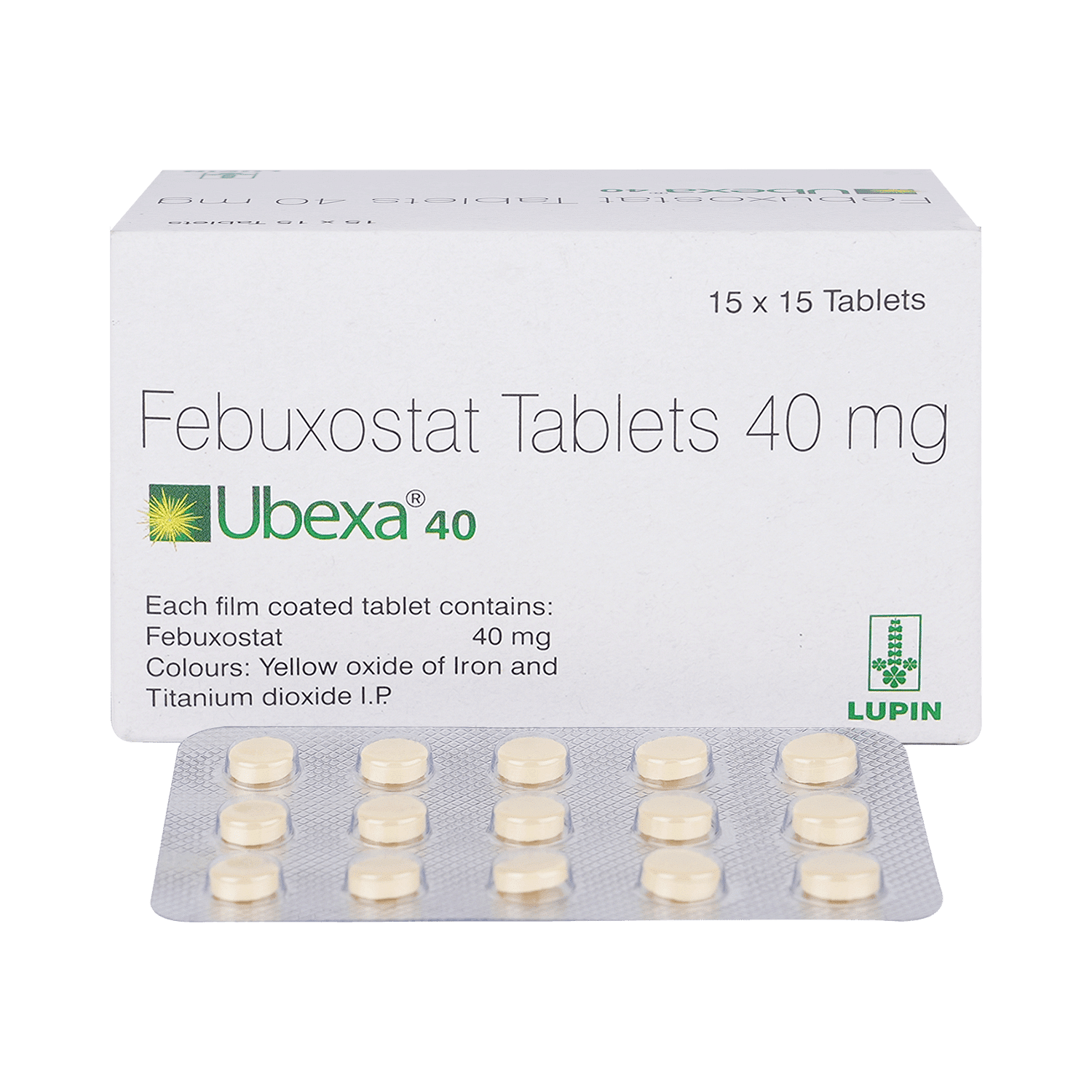
Ubexa 40 Tablet
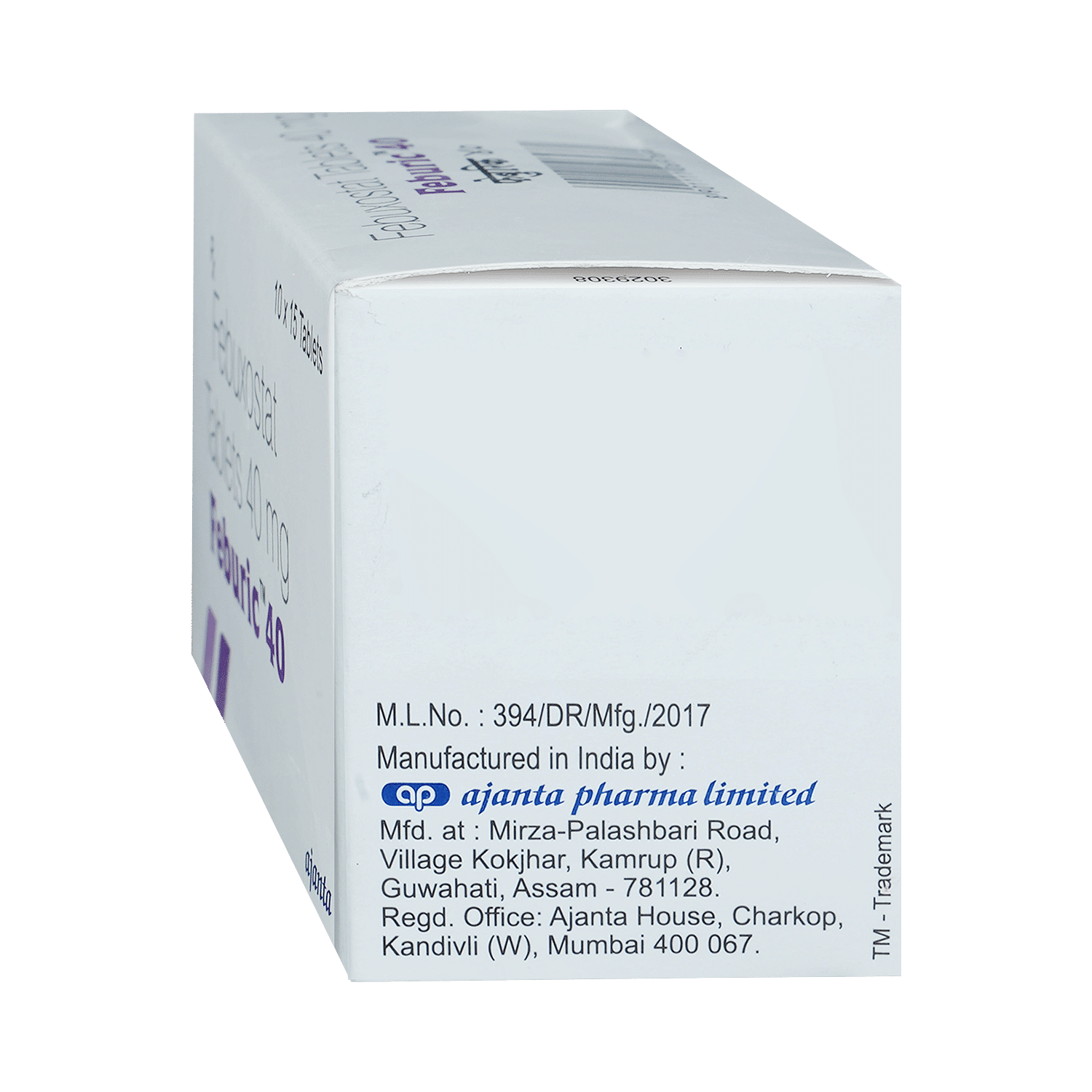
Feburic 40 Tablet
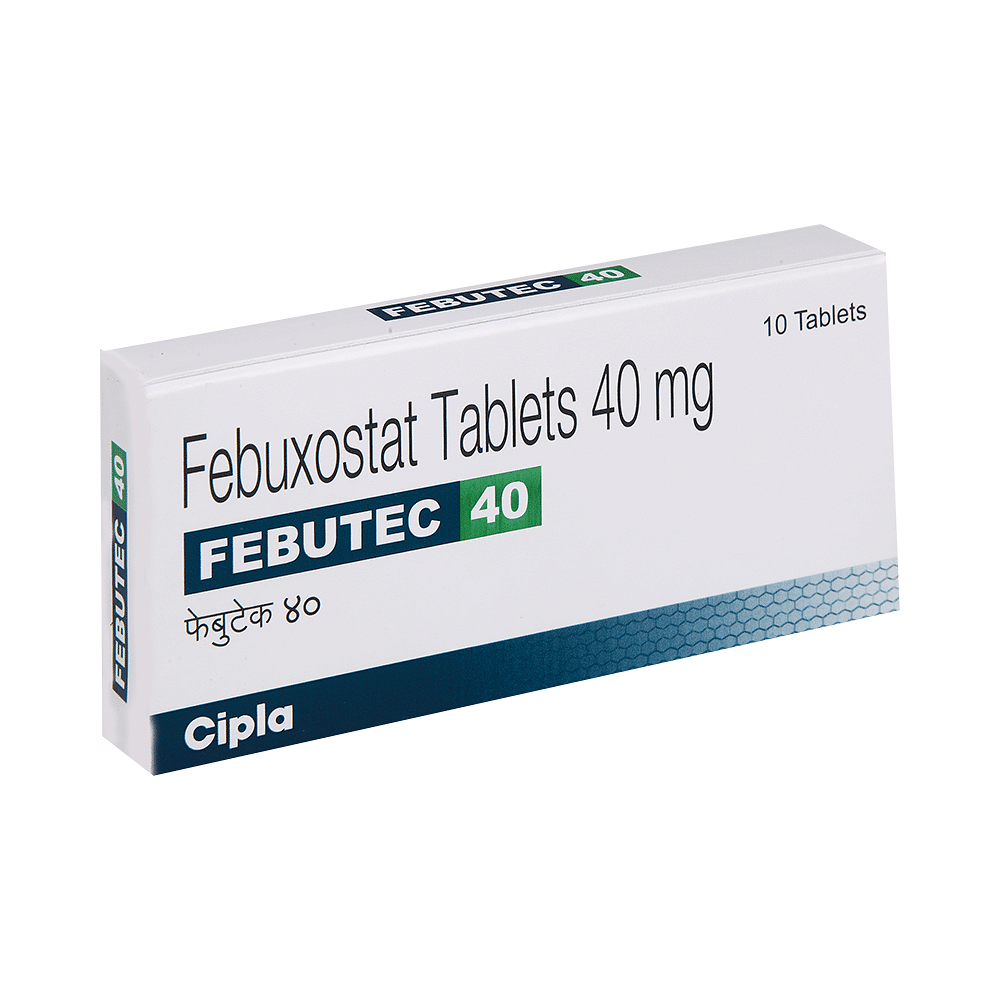
Febutec 40 Tablet
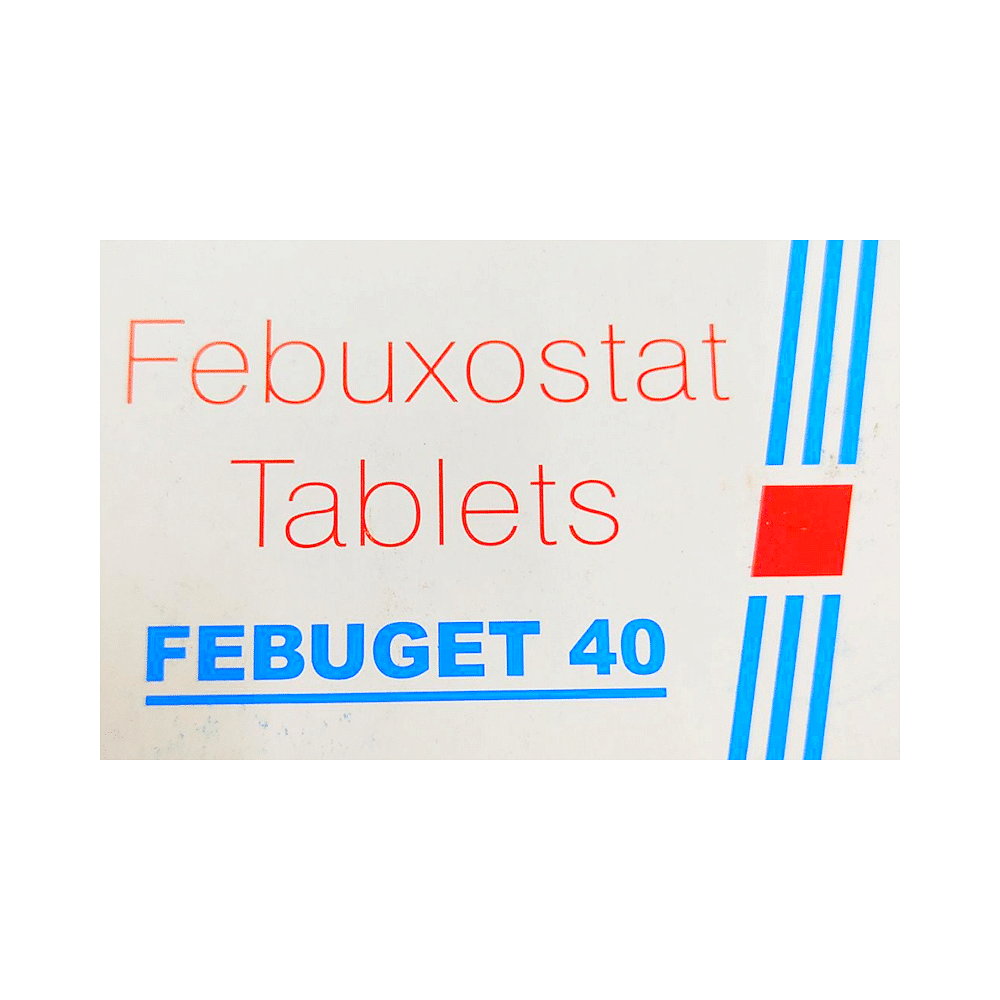
Febuget 40 Tablet
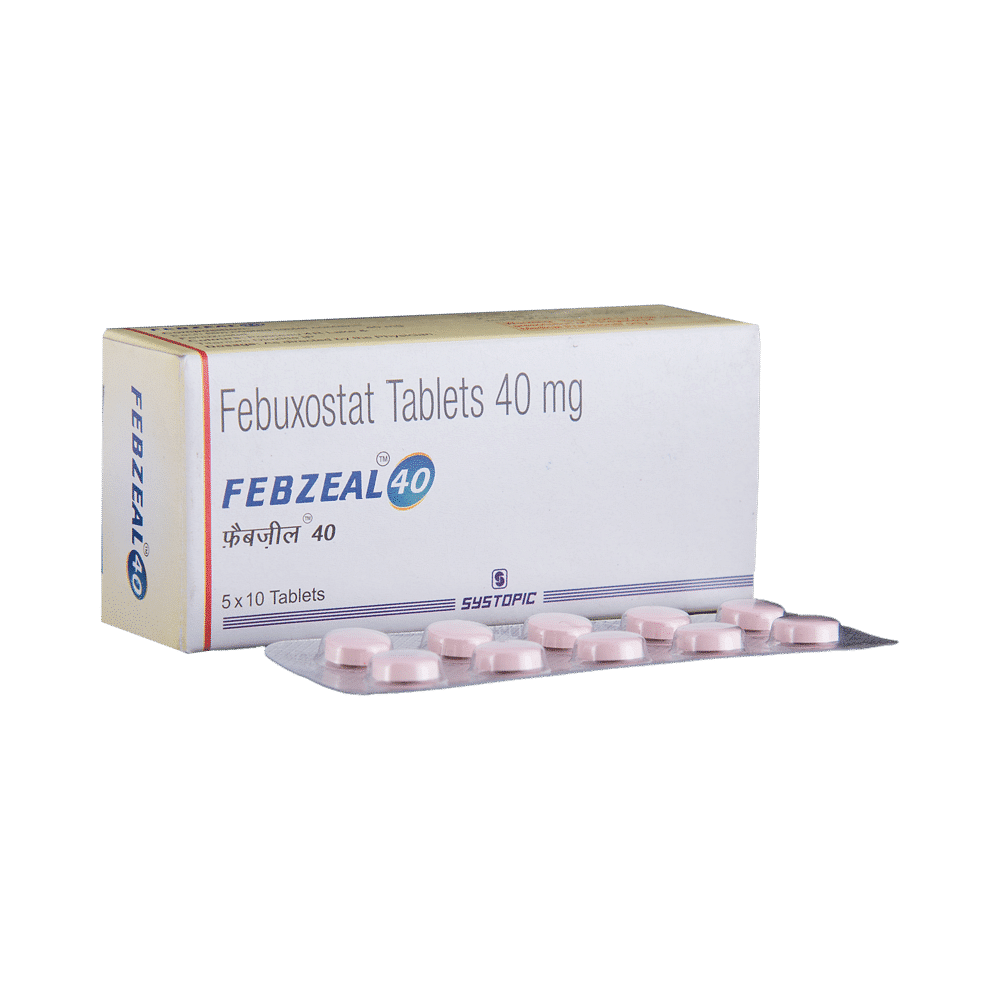
Febzeal 40 Tablet

Buxoric 40 Tablet
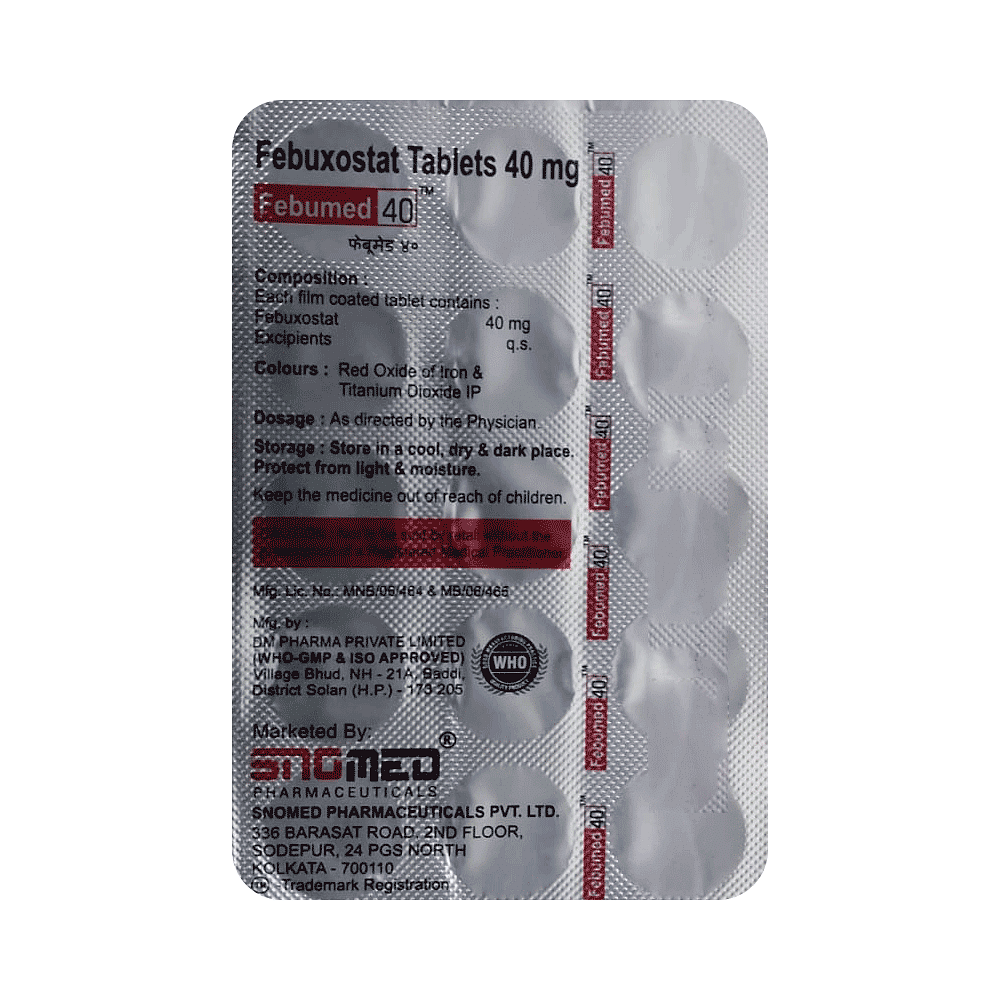
Febumed-40 Tablet
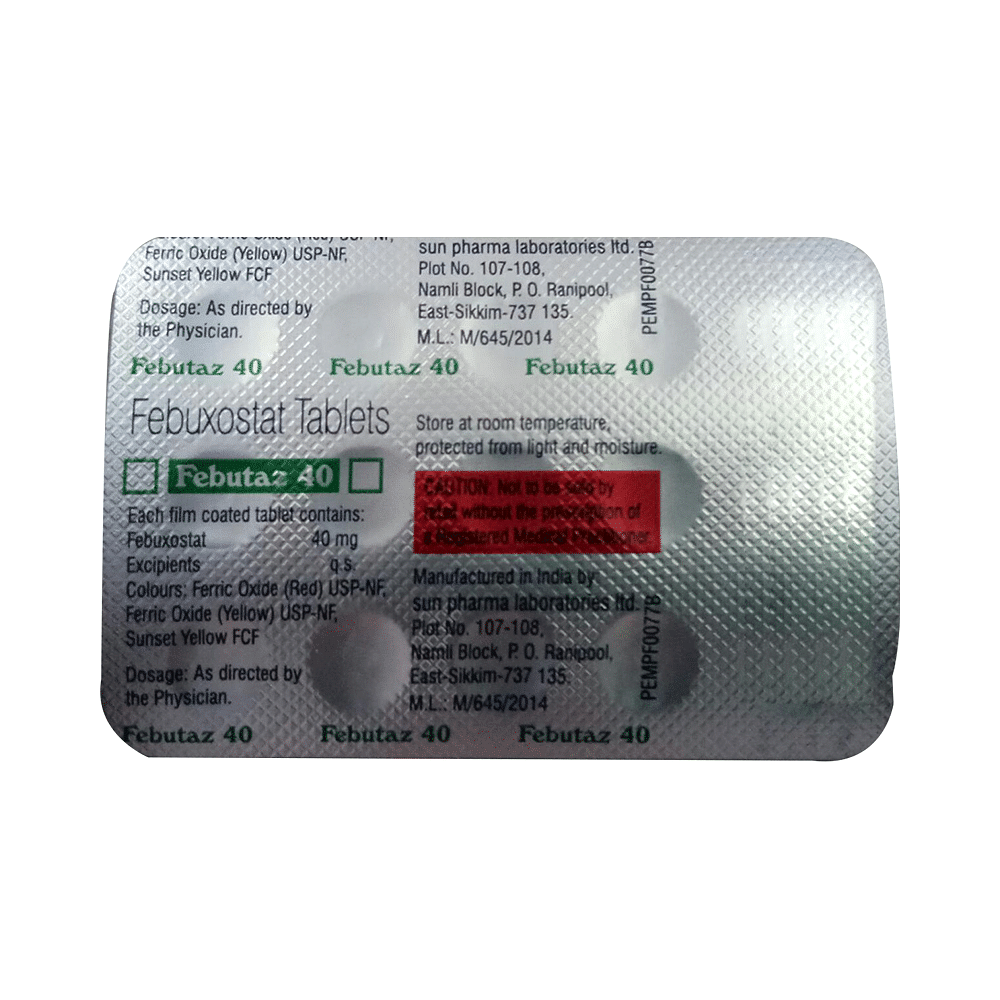
Febutaz 40 Tablet
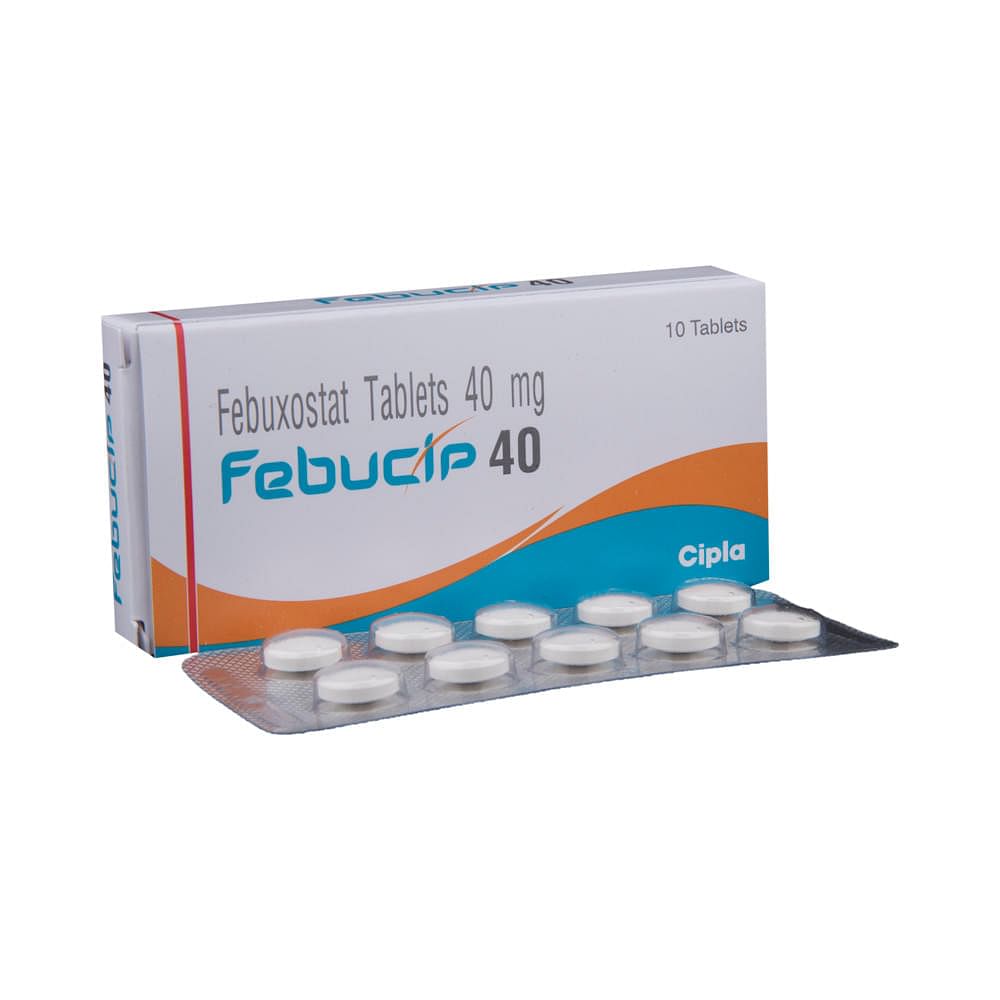
Febucip 40 Tablet
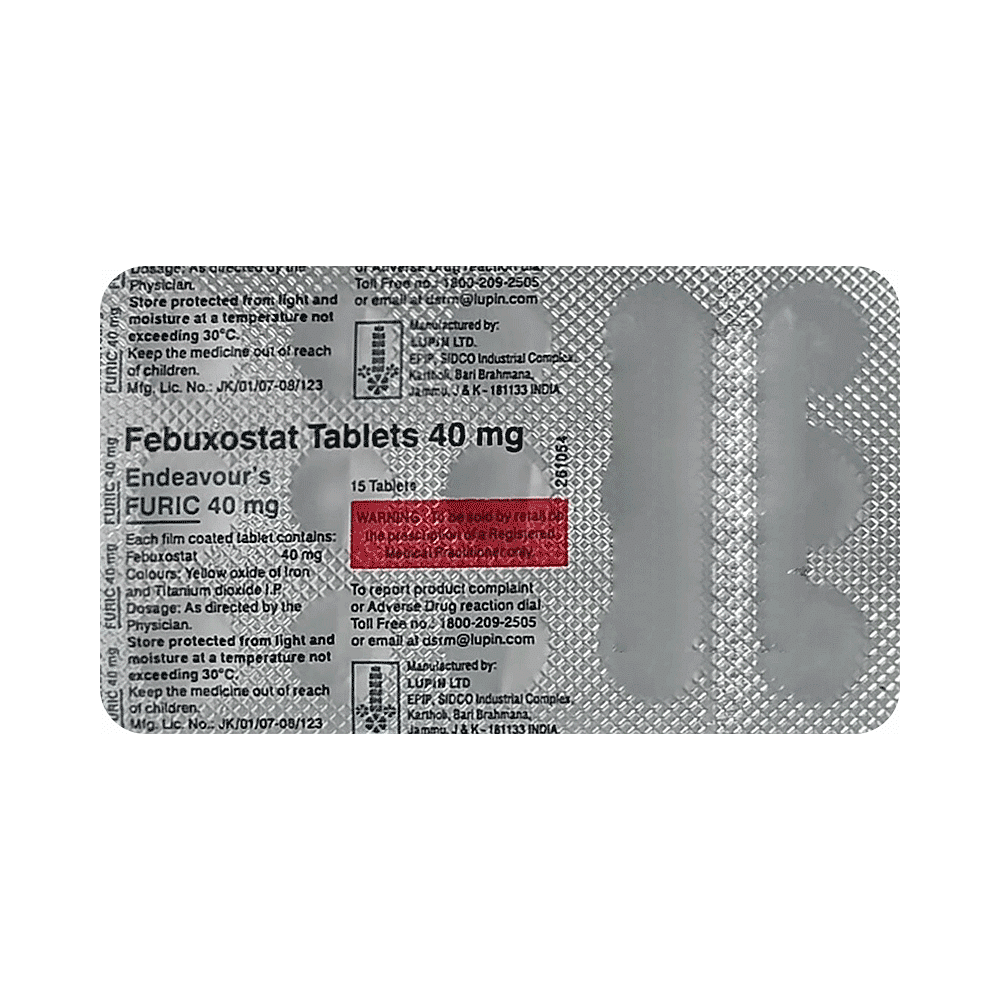
Furic 40mg Tablet
Frequently asked questions
What is Febuxo 40mg Tablet used for?
Febuxo 40mg Tablet is prescribed for treating gout in adults who have not responded to allopurinol or are unable to take it. Gout is a type of arthritis where uric acid, a substance naturally present in the body, accumulates in joints causing sudden attacks of redness, swelling, pain, and heat.
What are the side effects of Febuxo 40mg Tablet?
Febuxo 40mg Tablet may cause common side effects like abnormal liver test results, diarrhea, headache, rash, nausea, and even increased gout symptoms and localized swelling due to fluid retention in tissues (edema). However, serious side effects of Febuxo 40mg Tablet include heart problems, gout flares, liver problems, and severe skin and allergic reactions. It is crucial to report any serious side effects to your healthcare provider immediately.
How long should I take Febuxo 40mg Tablet?
The duration of Febuxo 40mg Tablet varies depending on the individual and their doctor's recommendations. It may take several months for Febuxo 40mg Tablet to effectively prevent gout attacks. Never discontinue this medication without your healthcare provider's advice even if you experience improvement.
What is the best time to take Febuxo 40mg Tablet?
Febuxo 40mg Tablet is usually taken once daily. It can be taken at any time during the day, but preferably at the same time each day for consistent adherence.
Can Febuxo 40mg Tablet cause kidney damage?
Febuxo 40mg Tablet may potentially affect kidneys in various ways. Potential symptoms include blood in urine, frequent urination, kidney stones, abnormal urine tests (elevated protein levels), and reduced kidney function. Rarely, it may lead to changes or reduction in urine output due to inflammation of the kidneys (tubulointerstitial nephritis). Seek guidance from your doctor if you experience any further kidney-related issues.
Can I stop taking Febuxo 40mg Tablet on my own if I am fine and have no pain or swelling in joints?
No, do not discontinue Febuxo 40mg Tablet without consulting your doctor. Stopping the medication could raise uric acid levels, potentially exacerbating symptoms. It's crucial to maintain treatment as directed by your healthcare provider.
What are the things which I need to know while taking Febuxo 40mg Tablet?
You should be aware of the potential for serious heart problems associated with Febuxo 40mg Tablet. Symptoms include chest pain, shortness of breath or difficulty breathing, dizziness, fainting, lightheadedness, rapid or irregular heartbeat, numbness or weakness in one side of your body, slurred speech, and sudden blurred vision. Seek medical attention immediately if you experience any of these symptoms.
Can Febuxo 40mg Tablet cause liver problems?
Yes, Febuxo 40mg Tablet can potentially affect the liver. Regular blood tests will be conducted before and during treatment to monitor liver function. Report any symptoms like fatigue, pain or tenderness in the right abdomen, loss of appetite for several days or longer, altered urine color (dark or tea-colored), and jaundice.


